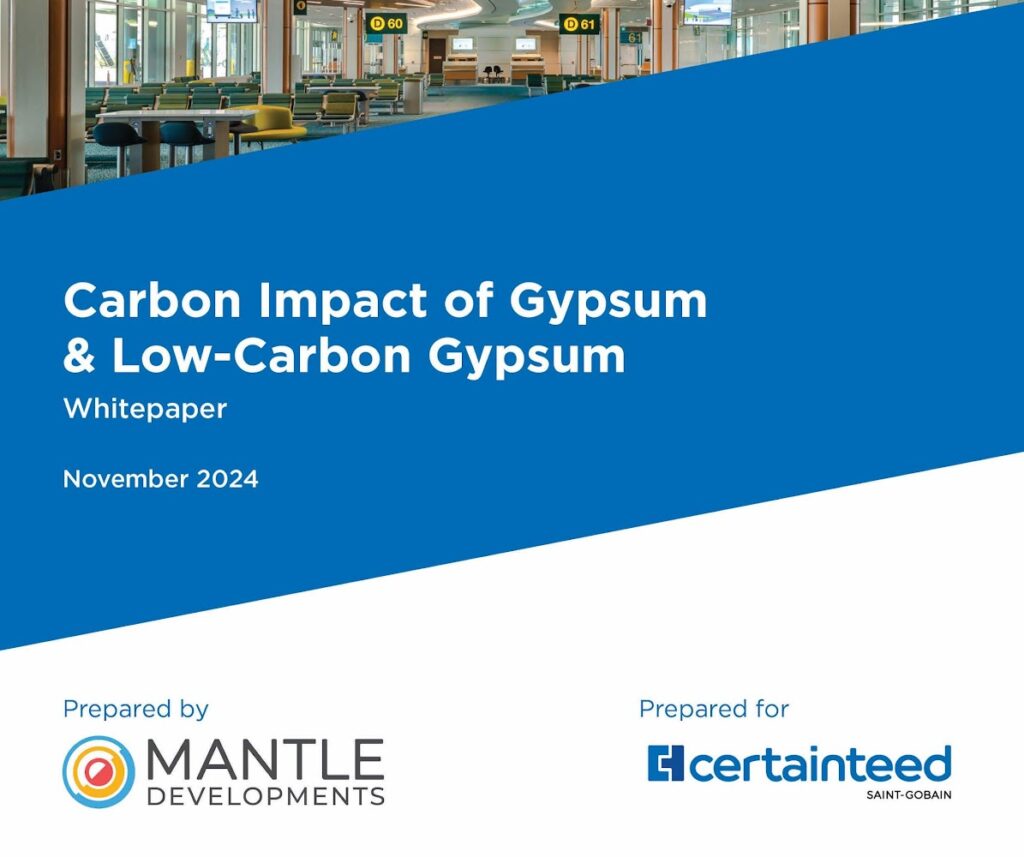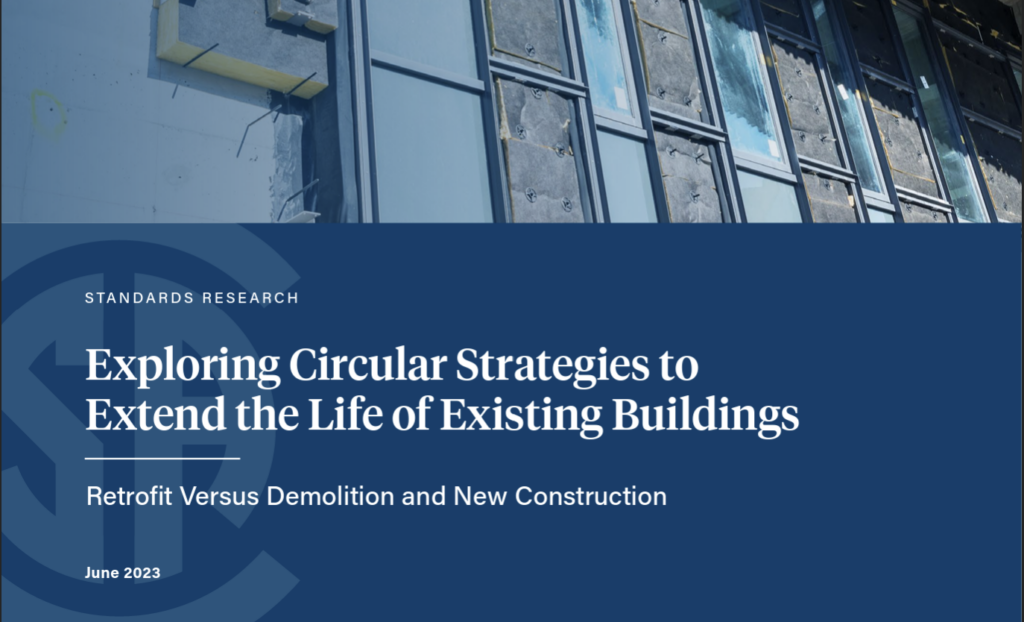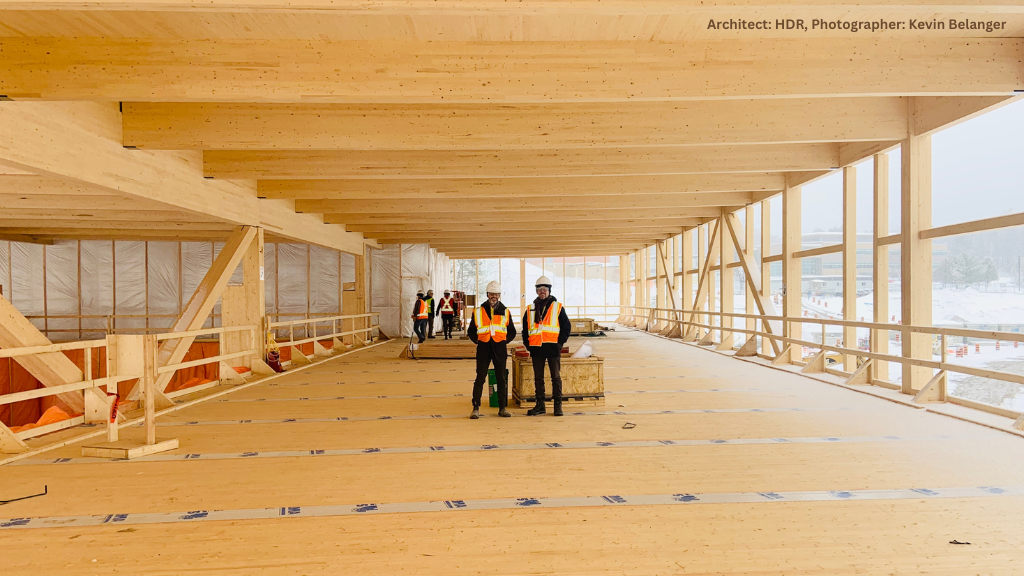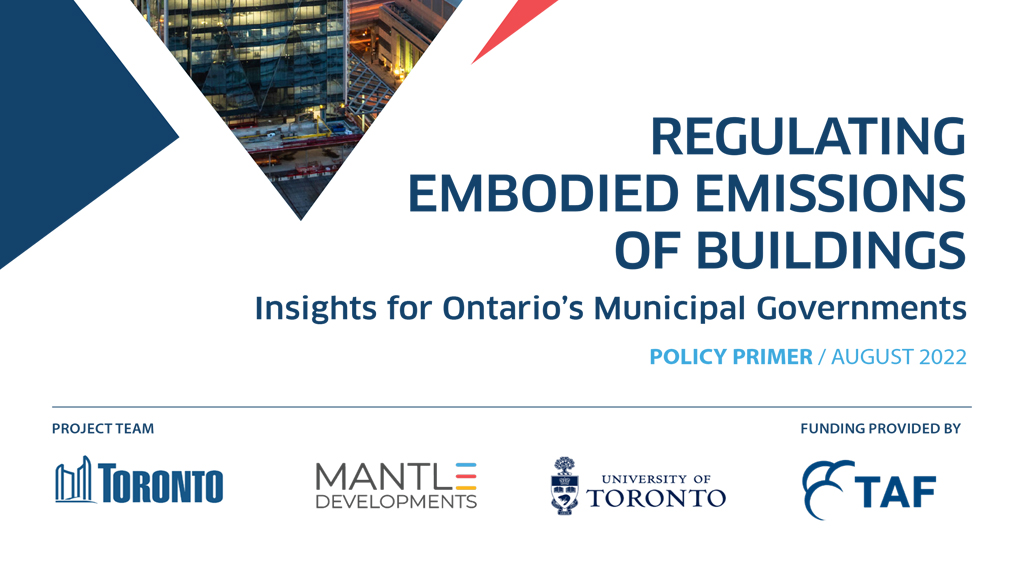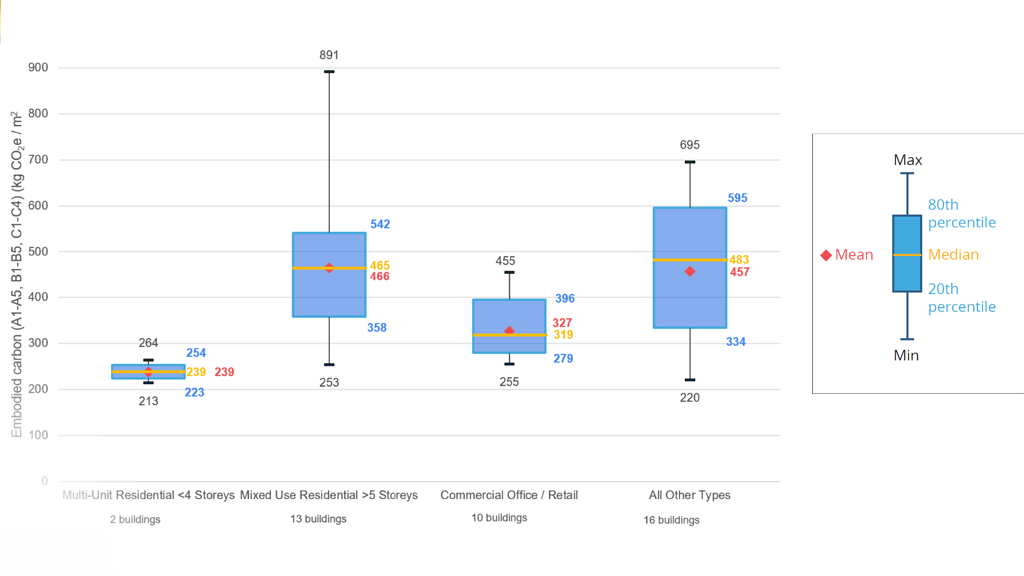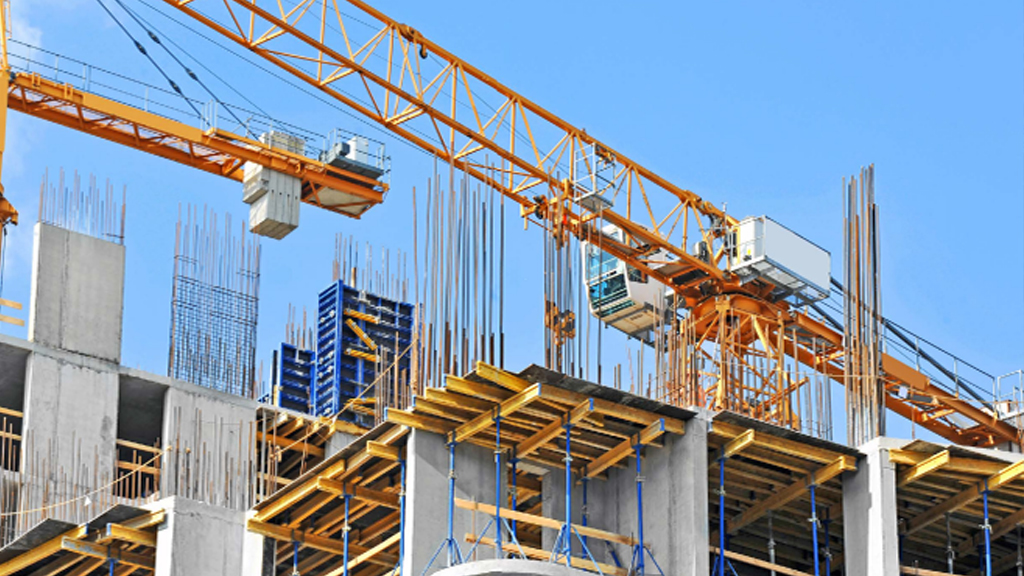Impact in Action: Lessons Learned from Implementing Climate Resilience Centres (CRCs) into the YMCA of Greater Toronto
Through years of work with Mantle, the YMCA of Greater Toronto (the Y) has demonstrated national leadership in climate resilience through climate-ready facilities and community […]
Read MoreCarbon Impact of Low-Carbon Gypsum
The embodied carbon of buildings accounts for 11% of Canada’s emissions. Ongoing efforts to reduce emissions from steel and concrete need to be supplemented with […]
Read MoreEmbodied Carbon Management Toolkit and Summary Recommendations
Embodied carbon is being increasingly recognized for its central role in the carbon impact of the built environment. The City of Toronto is leading the […]
Read MoreNova Scotia Power Case Study: Increasing Power Utility Resilience Through Climate Change Scenario Analysis
The power sector and its infrastructure are increasingly exposed to physical climate risks and subject to short-term acute disruptions and longer-term chronic impacts reducing operational […]
Read MoreExploring Circular Strategies to Extend the Life of Existing Buildings; Retrofit Versus Demolition and New Construction
In a new study released on behalf of CSA Group, Mantle Developments carried out a comparative analysis assessing the impacts of deep retrofits in comparison […]
Read MoreCanadian Nuclear Laboratories: Case Study and Environmental Impact Analysis
Mantle Developments created a case study on the Canadian Nuclear Lab’s recent mass timber demonstration projects at their Chalk River campus in eastern Ontario. At […]
Read MoreClimate Adaptation and Resilience in Commercial Real Estate
Mantle Developments conducted a national and international literature review of existing codes, standards, guidelines, and resources, to support the Canadian Standards Association’s (CSA) climate resilience […]
Read MorePolicy Primer: Regulating Embodied Emissions of Buildings; Insights for Ontario’s Municipal Governments
Download the policy primer here. Mantle Developments, together with the University of Toronto’s Ha/f Research Studio and the City of Toronto’s Planning Department, have produced a […]
Read MoreOntario’s first benchmarking of embodied carbon for large buildings
Mantle Developments, together with the University of Toronto’s Ha/f Research Studio and the City of Toronto, have produced the first benchmarking of embodied carbon for […]
Read MoreStrategies for Low Carbon Concrete
Mantle Developments authors report on procuring low embodied carbon concrete. Did you know that concrete is the second most widely consumed substance after only water? […]
Read More

